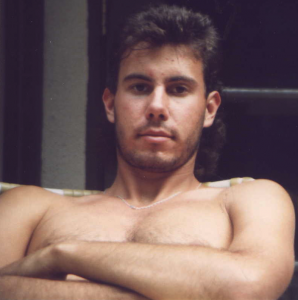The Hardening Years
 Imagine a strange society where young people spend the first 22 years or so of their lives cloistered away from the real world. They read books, listen to lectures and study all the things that other people have actually done in the real world out there somewhere, and how these people contributed actual skills and talents in the service of their communities, cultures and societies. The young people of this society may work part time to pay for their schooling process, or to pick up a little spending cash for a car or electronic equipment, but this part time work is usually disconnected from the things they are studying about in school.
Imagine a strange society where young people spend the first 22 years or so of their lives cloistered away from the real world. They read books, listen to lectures and study all the things that other people have actually done in the real world out there somewhere, and how these people contributed actual skills and talents in the service of their communities, cultures and societies. The young people of this society may work part time to pay for their schooling process, or to pick up a little spending cash for a car or electronic equipment, but this part time work is usually disconnected from the things they are studying about in school.
Imagine now that one day, these young adults experience a rite of passage in which they are set free into real world. “Congratulations, kids! Have at it!”
At first, this freedom can might feel quite wonderful. However, over time, many of these young people find that they are now starting at the beginning all over again, enrolled in the Kindergarten of real life. Where do you meet new friends? How do you write a resume? How do you conduct yourself in a job interview? How do you perform the various tasks that are required of you in your new job? Who do you go to when you need to ask a question that reveals your ignorance? Do you go to the person who signs your paychecks? Do you go to your parents who want so badly to hear stories of your success? What happened to the teachers who were paid specifically to guide you along?
Imagine the culture shock that the young adults of this strange society might experience in their transition from high school or college back into Kindergarten, a shock that might suddenly harden them to the reality of adult life. How might this hardening affect their attitudes and actions?
Now imagine a different kind of society where the Kindergarten and primary school of engaging in the real world is integrated into the traditional schooling process that youths experience. Imagine that these youths—the most energetic members of society—learn to contribute their energy and enthusiasm in their civic participation unhardened.
Which of these societies would you prefer to see your children and your children’s children grow up in?



